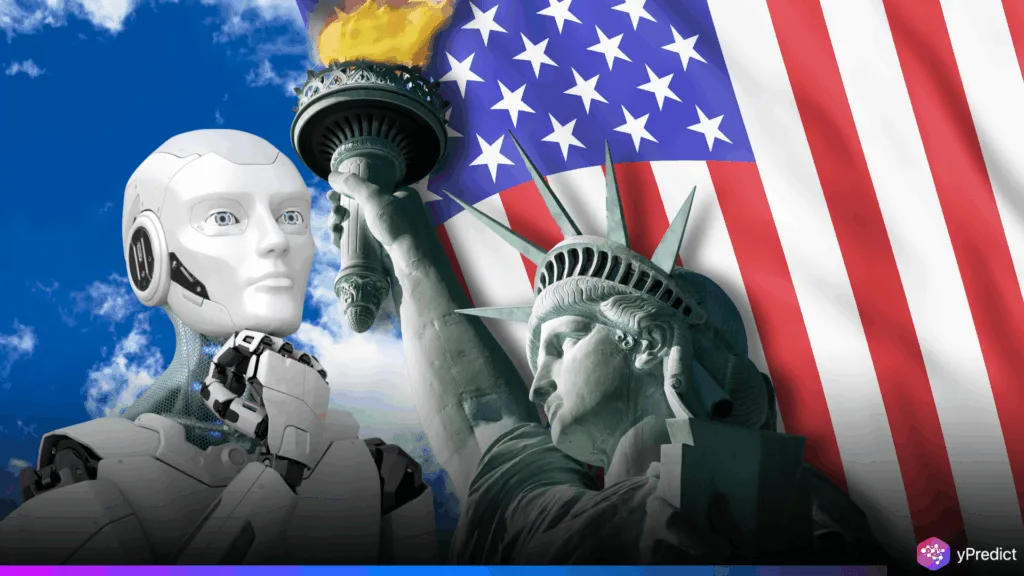
North America continues to see a significant influx of AI venture capital despite the US’s restrictive political environment. From February to May this year, North American AI startups attracted $69.7 billion across 1,528 deals. In comparison, European startups received $6.4 billion and Asian ventures only $3 billion. The AI landscape has been upended by President Trump’s strict immigration policies and reductions in scientific grants. However, investors continue to have faith that American businesses will dominate the global AI race.
AI Venture Capital Defies Political Turbulence
North American AI venture capital funding totaled $69.7 billion between February and May 2025. That’s nearly 11 times the amount invested in European AI startups and 23 times more than in Asia. Thus, despite government budget cuts and regulatory actions, the United States managed to maintain investor confidence.
While Trump’s administration reduced federal research support, it hasn’t discouraged private backers. Furthermore, the U.S. ecosystem continues to provide unparalleled access to talent, technological infrastructure, and business opportunities. The region holds a dominant 86.2% stake in global venture capital for AI in 2025, demonstrating this assurance.
Can Europe and Asia Shift VC Momentum?
Europe’s AI aspirations have not yet resulted in significant venture capital funding victories. The EU has pledged hundreds of billions to support AI development. However, despite startups like Mistral and Aleph Alpha, capital flow remains unchanged.
Asian AI startups raised just $3 billion in 515 deals between February and May. One of the biggest obstacles is the export ban on AI chips. Although there are well-known Chinese companies like DeepSeek and Butterfly Effect, their investor appeal is limited.
Nobel laureate and AI pioneer Geoffrey Hinton even denounced Elon Musk for damaging American scientific institutions. He questioned Musk’s role in AI governance in a widely shared March post, attributing institutional harm to policy chaos.
The political instability in the United States has not produced the expected benefits for Europe or Asia. Hence, despite administrative uncertainty, investors continue to concentrate on areas with a history of high innovation and returns.
North America’s Lead Grows as Others Stall
In 2024, North American AI startups secured 75.6% of global VC funding. Furthermore, that figure surged to 86.2% at the beginning of 2025. The upward trend shows no signs of slowing, despite growing political and trade tensions.
Meanwhile, Europe’s structured investments and Asia’s technological capabilities struggle to match North America’s pace. Thus, a combination of trade restrictions, export restrictions, and ambiguity surrounding chip access hinders Asia’s rapid growth.
In the future, North America is anticipated to continue to lead the world in AI venture capital, barring a significant change in policy. For high-return AI innovation, the U.S. continues to be the preferred market despite growing global competition.
AI Venture Capital Favors Familiar Ground
For now, AI venture capital continues to find its strongest footing in North America. Investors still see U.S. innovation as their best bet, even with hostile politics. Asia and Europe must improve incentives, promote investor trust, and lessen friction if they hope to compete.
Until then, the United States will likely maintain its lead in the global AI race. However, sustained investment in foundational research and stable policies will be necessary for long-term leadership. Therefore, global players need to move quickly as the AI landscape changes to prevent further lagging.





